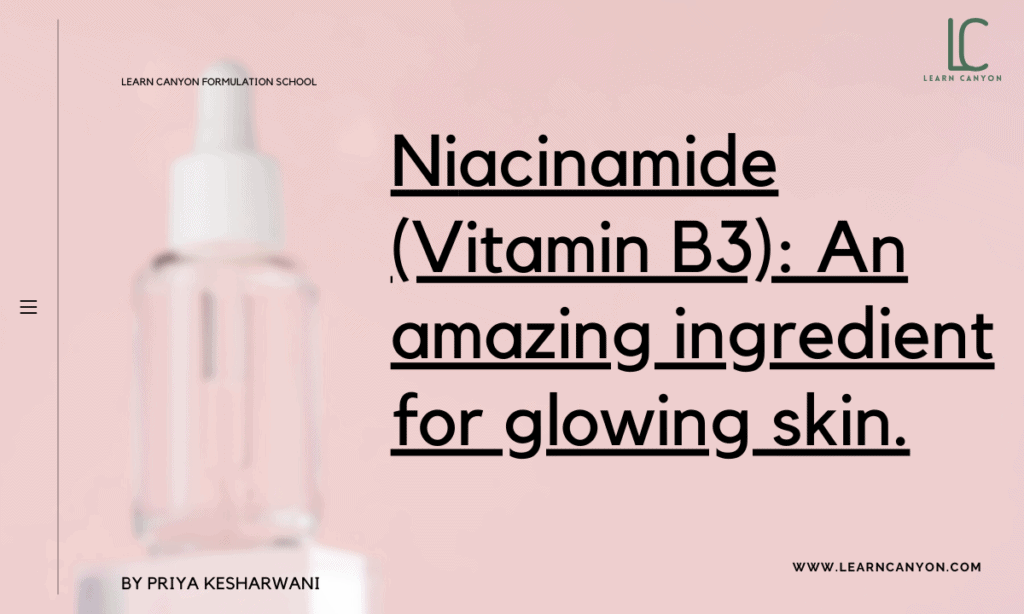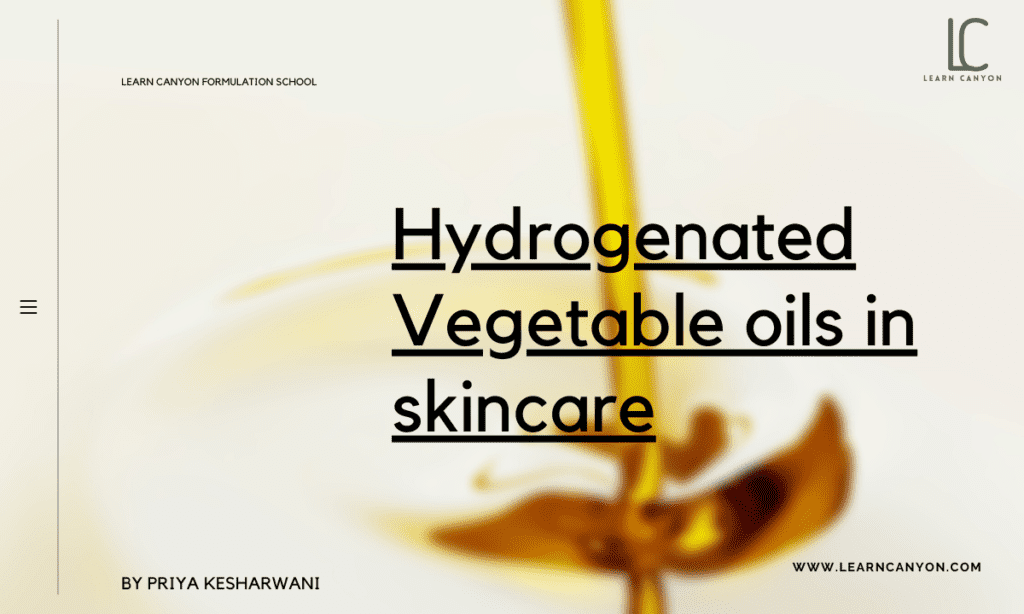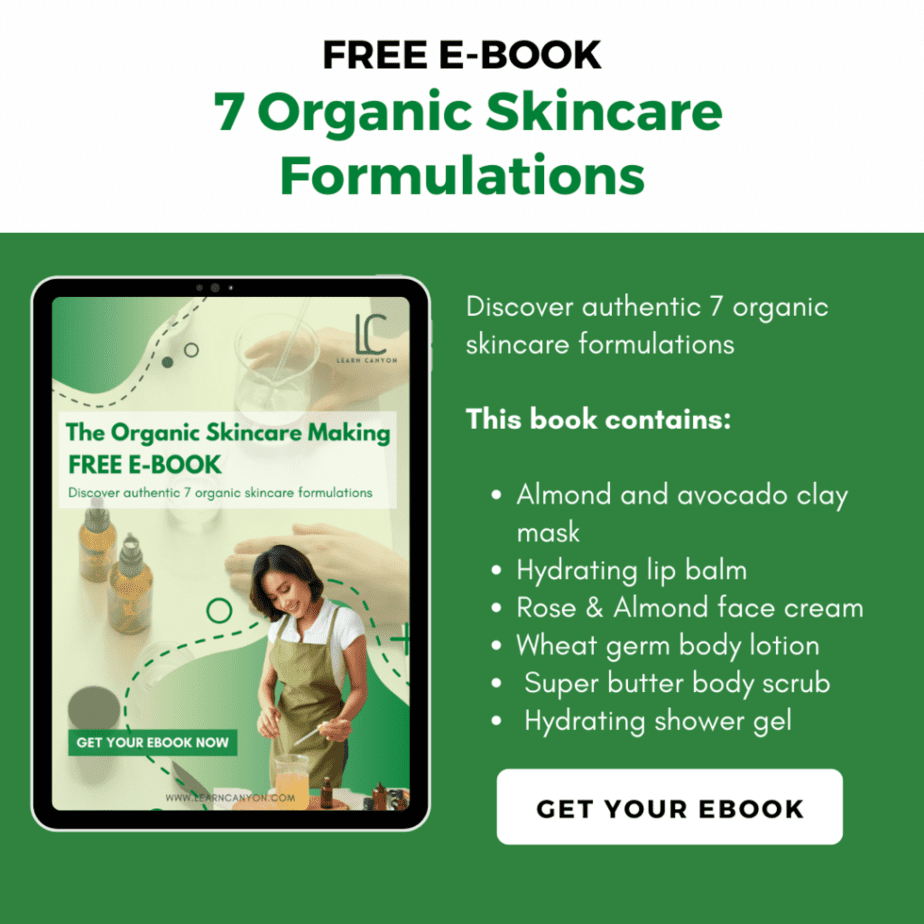
Hydrogenated vegetable oil

Is it okay to use hydrogenated oil in skincare?
When you use oils, your skin becomes greasy, oily, and glossy! If it does, you’ve either applied too much oil or used the wrong type. Vegetable oils contain the same molecules and substances that are found in human skin.
Each oil has a distinct texture as well as medicinal properties. If used and applied properly, these are all your skin requires. When they’re gone, it’ll be clean, soft, fed, and revitalised. However, let us discuss how to work on the skin.
What are hydrogenated vegetable oils?
Vegetable Oil is a vegetable-derived expressed oil that is mostly made up of triglycerides of fatty acids. Hydrogenated Vegetable Oil is created by adding hydrogen atoms to vegetable oil.
| What is it? | Vegetable Oil is a vegetable-derived expressed oil that is mostly composed of triglycerides of fatty acids. Hydrogenated Vegetable Oil is made by adding hydrogen atoms to vegetable oil. |
|---|---|
| INCI | Hydrogenated vegetable oil |
| Appearance | Beige unctuous, solid paste |
| Texture | Thick, sticky, smooth paste |
| Recommended Usage | 1–10% |
| Solubility | Water |
| Melting point | 60°C |
| Boiling point | 300°C |
| pH | 7- 8 |
| Aroma | Characteristic aroma |
| Why do we include it in formulations? | By establishing a barrier on the skin's surface, Hydrogenated Vegetable Oil helps to reduce the loss of water. |
| How to work with it? | Included during the formulation's cool-down phase to avoid heating. |
| Applications | Hydrogenated Vegetable Oil is an occlusive emollient that moisturises the skin. |
| Absorption rate | Slow |
| Strength | By establishing a barrier on the skin's surface, Hydrogenated Vegetable Oil helps to reduce the loss of water. |
| Weaknesses | Because it is highly concentrated and should always be diluted with a carrier oil before applying to the skin, it should not be used directly on the skin. |
| Substitution | Olive, canola, corn, or soy oils. |
| How to store it? | Stored in a cool, darka and dry place. |
| Shelf life | Hydrogenated vegetable oils have an infinite shelf life. |
Fast Facts
| Type of ingredient | Cleansing, hydrating, and nourishing |
|---|---|
| Main benefits | Vegetable oil has powerful moisturising characteristics that soothe and soften this tissue when applied to the skin. |
| Who should use it | All skin types, in general. |
| How often can you use it? | Daily |
| Works well with | The majority of the ingredients |
| Doesn't work with | Hydrators for water |
| How to use | Added during your formulation's cool down step. |
Mechanisms of action
The skin’s primary job is to protect inside organs from external attack. The molecule of saturated fat is too big to pass through the dermis and into the bloodstream.
Hydrogenated oils are utilised as an occlusive layer, which means they sit on top of the skin and prevent moisture from leaving. They’re useful since they don’t get absorbed.
Vegetable oil includes linoleic acid, which forms a protective layer on your skin’s surface and keeps it moisturised, making it ideal for those with dry skin. It also protects against skin damage caused by substances such as uric acid.
Benefits of hydrogenated vegetable oils
- There are a number of reasons why hydrogenated vegetable oil should be chosen over alternative oil thickeners. To begin, hydrogenated oils are known for having a long shelf life.
- It lasts slightly longer than the original oil. This means they don’t get rancid as soon, which is good because oxidised oils are unhealthy for your skin.
- Second, because they are standardised, the overall outcome will be consistent. When using natural butter or wax, considerable changes in texture, viscosity, and behaviour might occur from batch to batch, affecting the product’s quality for the better or for the worse.
- It’s usually a good idea to standardise your core ingredients as much as possible to ensure uniform quality every time.
Side effects of hydrogenated vegetable oils
Hydrogenated oil may have a number of harmful health consequences.
How to use it in formulation?
To avoid heating, this ingredient is used in the formulation’s cool-down step. Because it is highly concentrated, it should always be diluted with a carrier oil before applied to the skin.
Work well with other ingredients
The majority of the components work well with hydrogenated vegetable oils.




